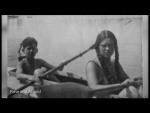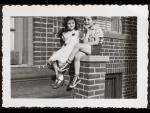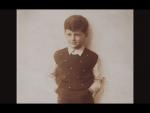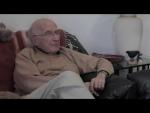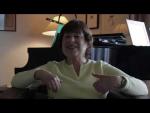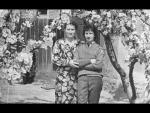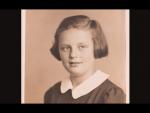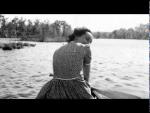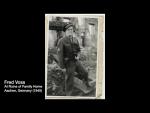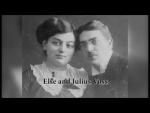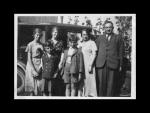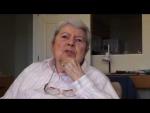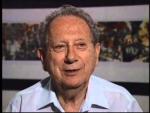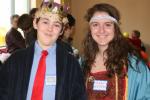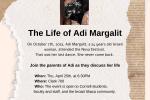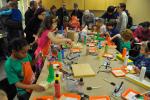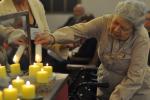Videos of families who escaped the Holocaust and settled in Ithaca is a project of the Holocaust Education Committee of the Ithaca Area United Jewish Community. Videos were created and produced with assistance from Ithaca College Park Scholars, students at the Park School of Communication. Scroll through the videos to see our archive. Printed biographies and memoirs are displayed below the videos.
Oral Histories and Books of Local Interest
Oral Histories of Holocaust Survivors
Rose speaks about her experiences as a teenager in Stuttgart in the 1930s, as she was shunned by friends in the classroom, and the laws in Germany changed, requiring her family to flee. She came alone to the U.S. and worked as a ‘scullery maid’ before being admitted to Smith College and continuing her education.
Ann Erlich speaks about her life as a child of Holocaust survivors. Born in a DP camp in Mittenwald, Germany, Ann is the oldest child of a young couple whose large Polish Jewish families were destroyed by the Nazis.
Ann explains how, when she was young, her parents did not talk about their past and focused all their energy on making a new life in America. Their luck in being sponsored by an American soldier, who almost forgot about them when they got off the boat, shows the complete trust that the young refugees had in a kind stranger who eventually became a friend. Ann tells stories of the network of relationships that were needed just to find a place to live, and the reliance her parents had on her as a young girl who could translate English to Yiddish when they struggled to get settled. Her story describes the close-knit community of refugee friends that helped each other with every aspect of life in a new country. It is fascinating to hear how similar her family’s concerns were to new immigrants coming to the U.S. today.
Kurt was born in 1929 in Vienna to a family originating in Romania and Poland. Although he had a doctorate in Chemistry, Kurt's father was unable to find work as a scientist due to anti-Semitism , so started a small company in the apartment building where the family lived, manufacturing ski-bindings. Kurt attended an integrated school on the grounds of the Schonbrunn Summer Palace in Vienna. After Hitler annexed Austria (the Anschluss, Kurt attended a segregated school in another neighborhood. He recalls the Kristallnacht as Nazi's rifled through and stole their precious belongings. Soon after, the family left Vienna by train to Cologne, Germany and paid a smuggler to get them across the Dutch-German border and then to Antwerp in Belgium. They were in Antwerp for about 8 months, while Kurt's father tried to make arrangements to leave Europe. In August,1939, they were able to leave for Montreal, Canada, where a colleague of Kurt's father, who was in the ski-binding business sponsored them. Kurt spent the rest of his teenage years in Montreal, and went on to become a world-renowned physicist and human rights activist.
Roald Hoffmann speaks about the war-time circumstances of his life as a young child in the small town of Złoczów in Eastern Poland. Born into a happy and loving extended family, he and his parents were imprisoned in a forced labor camp beginning with the Nazi invasion of Russia in 1941. As the risks to their lives became more severe, he and his mother, and several family members found a place to hide in the attic of a school-house in a nearby town. Roald describes the conditions of the hide-out, and the enormous risks taken on by the school teacher and his wife who hid them. Ultimately, it was the moral actions of his family’s rescuers that saved their lives.
Noemi Kraut was born in Antwerp, Belgium into a Jewish family of active Zionists who worked in the diamond trade. After the invasion of Belgium by the Germans in 1940, Noemi’s parents planned their escape from Antwerp to London, England. They left Antwerp with two small suitcases and young Noemi to the coast of Belgium where they got rides on military trucks crossing into France. Travelling up and down the coast of Belgium and France they were looking for a ship that would take them to England. Ultimately, an Egyptian sailor took pity on them, and convinced his captain to allow them to board a freighter destined for the U.S.. Noemi and her parents disembarked in England where they lived until the war was over.
Maria is interviewed by her daughter and grand-daughter in Ithaca about her experience as a 10 year old girl whose family hid a Jewish family in their home on the outskirts of Budapest near the end of the war. Maria's father owned a shoe shop for making custom shoes, and his Jewish employee, Ede Hajos, asked Maria's father to look after his wife, daughters and sister while he was sent to a labor camp. Maria's mother and aunt took in eight members of the family altogether, and Maria recalls what the conditions were like in their home, as the Germans invaded Hungary in October 1944, and the fascist Arrow Cross party took over the country Ede Hajos did not return to his family, but everyone else in his family survived thanks to the courage of Maria's mother and aunt. In 2011 at the Israeli consulate in New York city, Maria received a Righteous of the Nations award from Yad Vashem in recognition of her family's bravery.
Mary tells the story of growing up in Vienna to Austrian parents surrounded by a large extended family including her mother's sisters and both sets of grandparents. She recalls seeing Hitler in person in a parade with her nanny, and tells how the SS came looking for her father at his office, and he cleverly avoided being arrested. At that point, Mary and her parents were forced to leave Austria, and did so legally as they were lucky to have recently acquired passports. Mary then recounts the sequence of events by which she and her parents were able to cross the border into Italy without any money, and without her grandparents and eventually ended up in Switzerland, where they lived until 1948 when their American visa number finally came through. Many members of Mary's extended family perished as they left Vienna to go to France and Belgium from where they were deported. She and her parents came to New York city where Mary studied English and qualified to get into went to Hunter College. She married Gerald Salton, a fellow refugee who came to Cornell, and she raised two children in Ithaca.
Rachel speaks about her family and how they escaped from Germany before the Holocaust. Rachel's parents had weathered wars and the Russian revolution while living in Lithuania. They moved to Berlin in the early 1920s for safety. Rachel was born in Berlin, and at the age of 6, her father uprooted the family once again to move to Lausanne, Switzerland where she went to school. She speaks about the life that her family led leading up to the war in the neutral country of Switzerland and finally moving to the U.S. as immigrants in 1939. Rachel's parents, driven by fear and worry managed to save the lives of their whole extended family. Rachel Siegel passed away at the age of 91 on February 21, 2016.
Fred speaks about volunteering for the American army after arriving in the U.S. He was sent to France as a combat engineer and translator.
Fred talks about growing up in Aachen in Germany before the Nazi’s came to power. During the following six years, Fred’s family struggled to make a life for themselves, until the Kristallnacht. Fred was beaten by members of the Hitler Youth and forbidden from going to school. The family home and textile store were destroyed and his father was sent to a concentration camp for two months. In exchange for everything they owned, Fred’s mother arranged an exit visa to England, and they eventually made it to the U.S.
Ilse Voss speaks about her family life in a small town outside Vienna prior to Hitler’s annexation of Austria. She describes how her family was evicted from their home and lived in the empty Rabbi’s apartment in the local synagogue. On Kristallnacht, the Nazis searched the apartment, forced them to leave and the synagogue was set on fire. Ilse and her mother left for England to work as a maid and au pair. Both Ilse’s father and 12 year old brother were deported.
Marion Joseph Wimpfheimer recounts the life of her family as wine-makers in Osthofen, a small town in the Rhineland of Germany. When the Nazis prevented non-Jews from working for Jews, Marion's family was forced to leave the winery behind. They were hoping to get visas to the U.S., but were rounded up in Mannheim and sent to Rivesalte and Gurs in Vichy France. After struggling to find food and survive there, her parents. her brother and Marion were sent to a transit camp in Marseille (her mother at the Center Bompard and her father at Camp des Milles) only to find out that their U.S. visas had expired. At that point when she was 12 years old, Marion's parents were deported to Poland, and she was sent to live in a Chateau near Limoges with other girls by OSE - (Œuvre de secours aux enfants -- a children's aid organization). When the Nazi's occupied Vichy France, Marion went into hiding with an elderly French couple who wanted to adopt her. After the war her brother, who was in hiding on a nearby farm, reunited with her and arranged for the two of them to emigrate to the U.S., when Marion was 16. She finished high school at night in New York, married there, and has two daughters and four grandchildren. Marion lives in Ithaca where she and her husband retired to be near family.
We Don't Say Goodbye recounts the story of the Holocaust as told by survivors who settled in New York's Southern Tier. Their first-person accounts encompass the history of the rise of the Nazi regime, discrimination against Jews, the destruction of Jewish property, the concentration camps, death marches and the liberation.
We Don't Say Goodbye was produced as a 1 hour PBS broadcast, WSKG TV in 2005. Much of the visual material in We Don't Say Goodbye is from the USC Shoah Foundation testimonies, collections of the U.S. Holocaust Memorial, The Anne Frank House in Amsterdam and Yad Vashem, the Holocaust memorial in Jersusalem, Israel.


